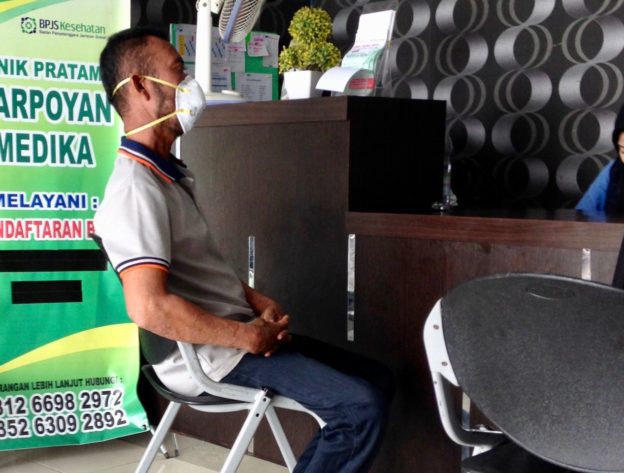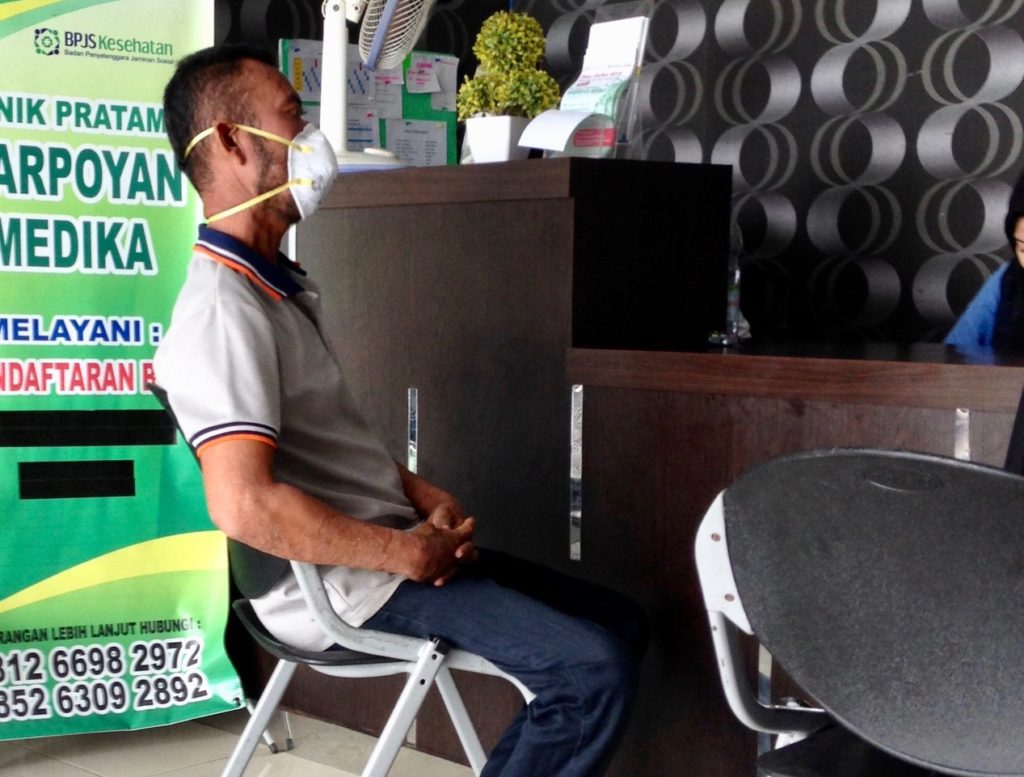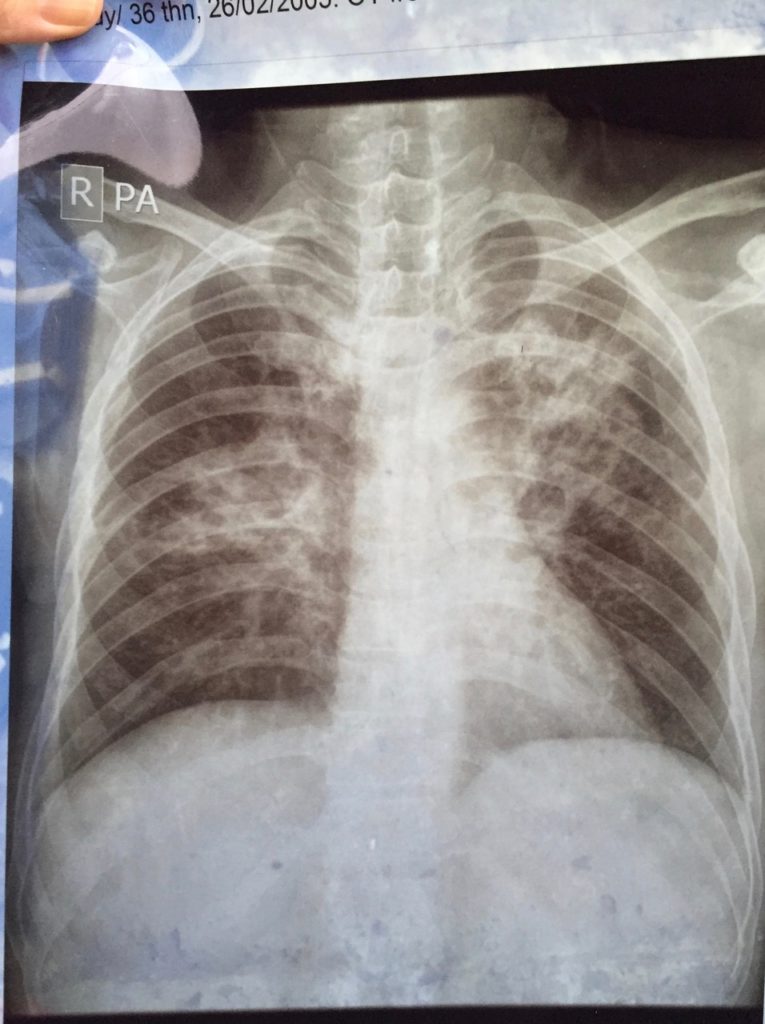This is Mr. Rahim, who recovered from tuberculosis (TB) taking medicine SEEDS workers helped him to obtain. The SEEDS health promotion program in Riau, Indonesia, first helped Mr. Rahim’s wife seven years ago, when she was pregnant and suffering from TB. Unfortunately, she discontinued her medicine before treatment was complete, her unborn baby died, and her husband was infected. The World Health Organization reports that an untreated TB patient spreads the disease to between ten and 15 additional people per year. SEEDS workers convinced Mrs. Rahim to restart the medication, and she survived.
When Mr. Rahim became sick, he could no longer work to support his family. He wanted to take medicine, but TB made him too weak for the 2-hour round trip on a motorbike to the clinic. Even if he did make it, he said, he could not communicate with medical workers because he only understood his village’s dialect. The medical system seemed overwhelming, too complex even to obtain the official diagnosis required for receiving medicine.
These barriers are common in Riau’s villages—barriers to tracking, training, transportation, treatment, and trust. SEEDS workers are now exploring a program to bridge such gaps in the pathway between TB patients and the government-sponsored services available to help them heal. For Mr. Rahim, SEEDS arranged transportation to the clinic, a local translator to engage medical personnel, and encouragement to continue his medication for the full, six-month course of treatment. Now Mr. Rahim is not only healthy but back to work and providing for his family. In partnership with government officials, SEEDS hopes to help many other villagers, and curb the devastating spread of tuberculosis.



